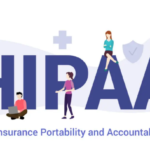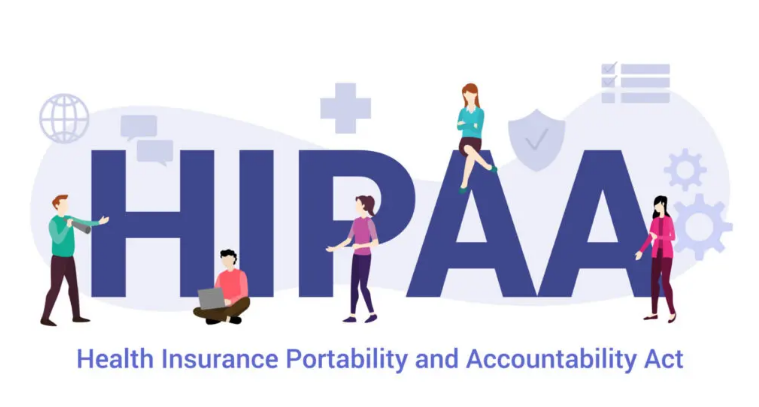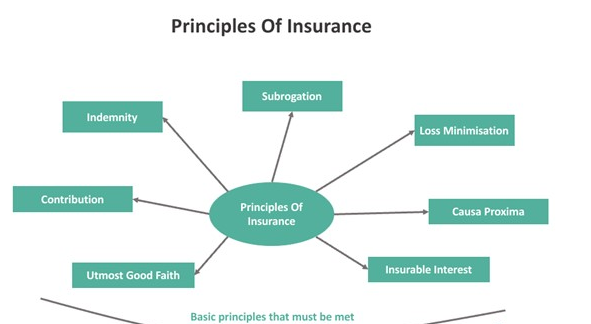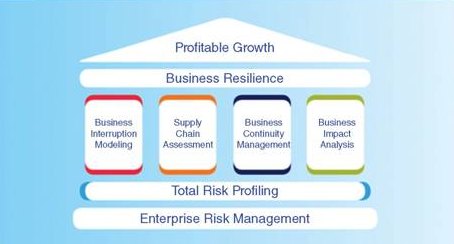Health insurance is a critical component of the healthcare system, providing financial protection against high medical costs. However, health insurance policies and their portability — the ability to transfer or continue coverage when changing jobs or health plans — can be complex and lead to issues, particularly when it comes to accountability for personal health information. Health insurance portability and accountability issues are at the core of concerns about access to coverage and the protection of sensitive patient data.
In the United States, the Health Insurance Portability and Accountability Act (HIPAA) addresses these issues, aiming to ensure both the portability of health insurance and the accountability of healthcare providers and insurers when it comes to handling personal health information. This article will explore health insurance portability and accountability issues, focusing on HIPAA, its impact on individuals, and the challenges that still exist in today’s healthcare system.
Understanding Health Insurance Portability
Health insurance portability refers to the ability of individuals to transfer or continue their health insurance coverage when they change jobs, lose their job, or switch to a new insurance plan. In the past, transitioning from one health insurance policy to another was often difficult, particularly for individuals with pre-existing conditions. The inability to carry health insurance from one job to another or between plans created gaps in coverage, leaving many people without the care they needed.
HIPAA, enacted in 1996, was a landmark piece of legislation designed to address these concerns by improving the portability of health insurance coverage for workers. The act includes provisions that protect individuals and ensure that they have access to health insurance even when switching jobs or experiencing life changes.
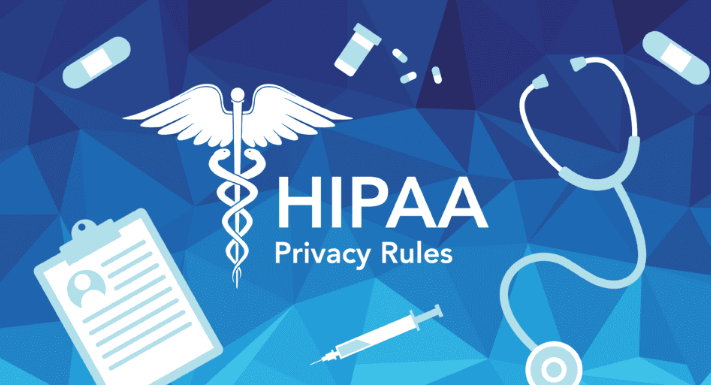
Key Provisions of HIPAA on Portability
- Pre-existing Condition Exclusions: Prior to HIPAA, many insurance companies refused to cover individuals with pre-existing medical conditions. HIPAA limited the ability of health plans to deny coverage or impose exclusions for pre-existing conditions. The Affordable Care Act (ACA), passed in 2010, further strengthened these protections, prohibiting insurers from denying coverage to anyone due to pre-existing conditions.
- Special Enrollment Periods: HIPAA allows individuals to enroll in health insurance outside of open enrollment periods under certain circumstances, such as losing other coverage or experiencing a significant life event like marriage or the birth of a child. This provision helps prevent gaps in coverage during life transitions.
- Guaranteed Renewability: HIPAA requires health insurers to renew a group health insurance plan at the employer’s request, except in limited circumstances such as fraud or failure to pay premiums. This ensures that individuals in group plans cannot lose their insurance coverage due to arbitrary reasons.
- Credit for Prior Coverage: HIPAA allows individuals who change jobs to apply credit for previous health insurance coverage toward any pre-existing condition exclusion periods under their new health plan. This provision helps reduce waiting periods for coverage when switching plans.
Despite these protections, challenges related to health insurance portability still exist. For example, people moving from employer-sponsored health plans to individual coverage may face difficulties, and differences in plan benefits can result in unexpected out-of-pocket costs. Additionally, individuals who are self-employed or work part-time often struggle with securing affordable health insurance coverage when changing jobs or experiencing gaps in employment.
Accountability: HIPAA and the Protection of Personal Health Information
The second key aspect of HIPAA is accountability, particularly with regard to the privacy and security of personal health information (PHI). HIPAA introduced national standards for protecting individuals’ medical records and other personal health information, ensuring that healthcare providers, insurers, and their business associates adhere to strict confidentiality guidelines.
HIPAA Privacy Rule
The HIPAA Privacy Rule establishes standards for the use and disclosure of PHI by covered entities, including healthcare providers, health plans, and healthcare clearinghouses. The rule aims to ensure that individuals’ medical information is properly protected while allowing the flow of health information needed to provide high-quality care.
Key elements of the HIPAA Privacy Rule include:
- Patient Rights: HIPAA gives patients the right to access their medical records, request corrections, and control how their personal information is used and shared. Individuals have the right to request limits on the use or disclosure of their information, and healthcare providers are generally required to honor these requests.
- Use and Disclosure of PHI: The Privacy Rule allows the use and disclosure of PHI without patient consent for specific purposes, such as treatment, payment, and healthcare operations. However, it restricts the use of PHI for marketing, fundraising, and other non-healthcare-related activities without explicit patient authorization.
- Minimum Necessary Standard: HIPAA requires covered entities to make reasonable efforts to limit the disclosure of PHI to the minimum amount necessary to accomplish the intended purpose. This standard helps reduce the risk of unnecessary or inappropriate exposure of sensitive patient information.
- Business Associates: HIPAA applies to entities that provide services to covered entities, such as billing companies, lawyers, or IT providers that handle PHI. These business associates must enter into agreements to ensure they comply with HIPAA’s privacy and security standards.
HIPAA Security Rule
In addition to the Privacy Rule, HIPAA includes the Security Rule, which sets standards for the protection of electronic PHI (ePHI). The Security Rule applies specifically to how PHI is stored, transmitted, and accessed electronically, requiring covered entities to implement safeguards to protect this data from unauthorized access, breaches, and other security threats.
Key provisions of the HIPAA Security Rule include:
- Administrative Safeguards: Covered entities must implement policies and procedures to manage the selection, development, and implementation of security measures. This includes risk analysis, workforce training, and incident response protocols.
- Physical Safeguards: Entities must take steps to protect physical access to electronic systems and ensure that only authorized individuals have access to PHI. This may include facility access controls, workstation security, and device management.
- Technical Safeguards: The Security Rule requires the implementation of technical measures to protect ePHI, such as encryption, access controls, and audit controls to monitor who accesses or modifies PHI.

Challenges and Issues with Health Insurance Portability and Accountability
While HIPAA was a significant step forward in addressing health insurance portability and the protection of personal health information, there are still several challenges and issues that persist. Let’s take a closer look at some of these ongoing issues.
1. Gaps in Health Insurance Portability
Despite HIPAA’s protections, many people still experience gaps in coverage when transitioning between jobs, particularly those who move from employer-sponsored insurance to individual coverage. For example:
- COBRA Costs: Under the Consolidated Omnibus Budget Reconciliation Act (COBRA), individuals who lose their job can continue their employer-sponsored health insurance for a limited period. However, COBRA coverage is often expensive because individuals are required to pay the full premium, including the portion previously paid by their employer.
- Limited Plan Options: When switching jobs, individuals may find that their new employer’s health plan offers different benefits or fewer coverage options than their previous plan. This can lead to gaps in coverage for certain services or higher out-of-pocket costs.
- Self-Employed and Gig Workers: People who are self-employed or work in the gig economy often face challenges in securing affordable health insurance. While the ACA created marketplaces for individual coverage, some individuals still find these plans expensive or inadequate for their needs.
2. Health Information Privacy and Data Breaches
As healthcare systems increasingly rely on electronic health records (EHRs) and other digital tools, protecting the privacy and security of PHI has become more complex. Data breaches and cyberattacks targeting healthcare providers and insurers are on the rise, exposing millions of individuals’ personal health information. Some of the challenges related to health information privacy include:
- Data Breaches: Cybercriminals target healthcare organizations because medical records contain a wealth of sensitive information, including Social Security numbers, medical histories, and financial data. Breaches can result in identity theft, medical fraud, and other serious consequences for affected individuals.
- Inadequate Security Measures: Despite the requirements of the HIPAA Security Rule, some healthcare organizations and business associates fail to implement adequate safeguards to protect ePHI. This can lead to unauthorized access, hacking incidents, or accidental disclosures.
- Third-Party Access: As healthcare organizations increasingly rely on third-party vendors and cloud-based services, ensuring the security of ePHI shared with these business associates is critical. Any breach or mishandling by a third party can expose patients’ personal information.
3. Patient Confusion and Access to Information
While HIPAA gives patients the right to access their medical records, many individuals remain unaware of their rights or encounter obstacles when trying to obtain their health information. Some common issues include:
- Denial of Access: Some healthcare providers or insurers improperly deny patients access to their medical records, even though HIPAA grants them this right.
- High Fees for Copies: While HIPAA allows reasonable fees for copying medical records, some providers charge excessive amounts, making it difficult for patients to obtain their information.
- Lack of Awareness: Many patients are not fully aware of their rights under HIPAA, including their ability to request corrections to their medical records or limit the disclosure of their PHI. This lack of awareness can result in individuals not exercising their rights to protect their information.
Conclusion
Health insurance portability and accountability are vital components of the healthcare system, ensuring that individuals can maintain coverage as they move between jobs or life circumstances and that their personal health information is safeguarded. HIPAA has been instrumental in addressing these issues, offering protections for individuals’ access to insurance and securing the privacy of their health data.
However, challenges remain. Gaps in health insurance coverage, particularly for self-employed individuals or those moving between employer-sponsored plans, continue to pose issues for many. Additionally, as healthcare data becomes increasingly digital, the risk of data breaches and unauthorized access to PHI grows, highlighting the need for stronger security measures and better enforcement of HIPAA’s provisions.
As healthcare continues to evolve, it will be important for lawmakers, insurers, and healthcare providers to address these ongoing concerns, ensuring that health insurance remains portable, accessible, and secure for all individuals.




